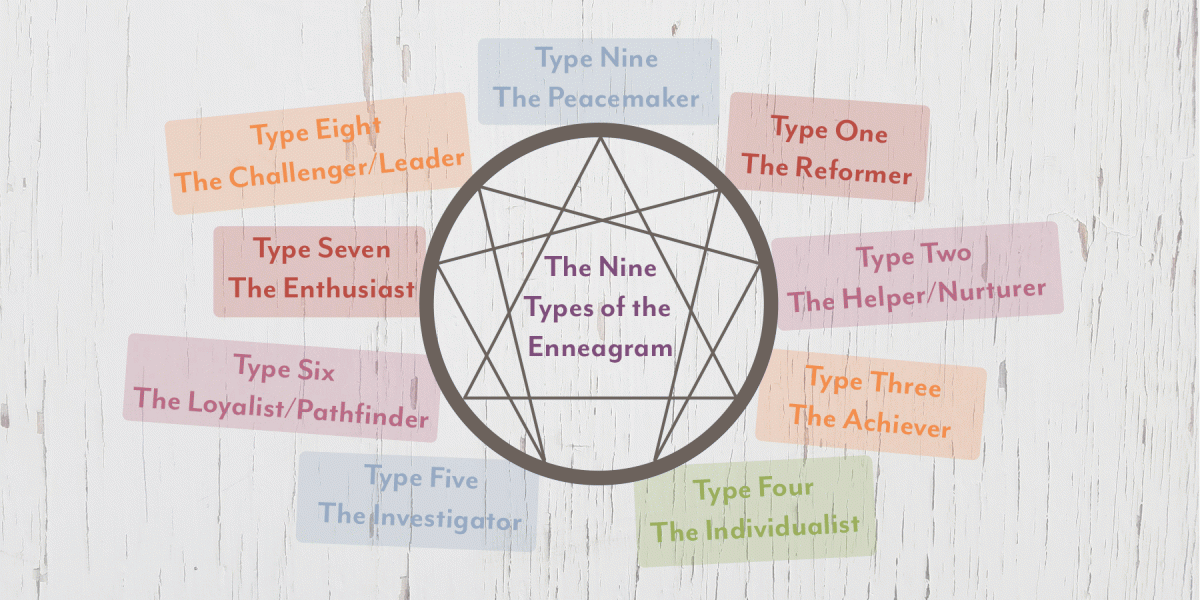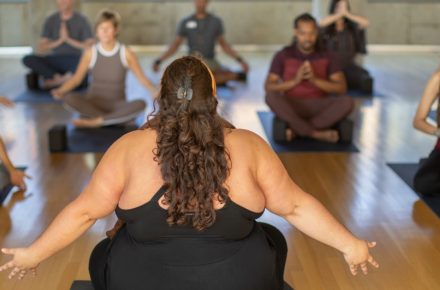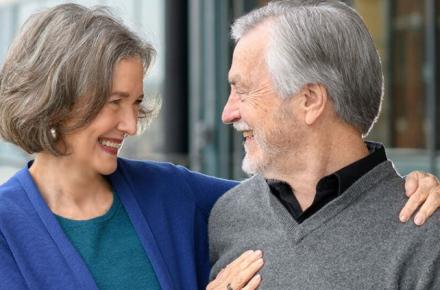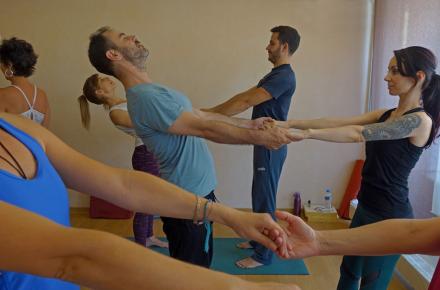How the Enneagram Can Help You Understand Your Personality and Your Relationships

The Enneagram is a psycho-emotional-spiritual tool that identifies nine fundamental types of personality. Each of us is born with a particular psycho-emotional pattern—a type-specific pattern of thinking, feeling, and being in the world.
As we study our type, we begin to realize that there is a range of healthy to average to unhealthy behaviors that we unwittingly engage in. We see that, when we are relaxed and feel safe, we have natural gifts inherent to our type that are more easily at our disposal. We discover that, under stress, we have typical but often unconscious ways of reacting that actually run counter to our best intentions, or to the expression of our finest gifts. When triggered, we react in the style of our type to protect ourselves from hurt, fear, shame, or loss, and often respond so automatically that we don’t see the impact we’ve had on others.
When we grow to understand our type, we develop skills that are particular to our type, and that allow us to reduce stress, reactivity, and our quick unconscious responses that negatively affect those we love and wish to be close to. And that allows us to show up for our greatest gifts. As we learn more, we begin to understand that others also have unconscious reaction patterns that, under stress, are predictable and often occur beyond their level of present awareness. We see mercifully that they are actually doing their best.
With even further study, we begin to develop compassion and understanding for self and others regarding our type’s patterns, and grow to humbly appreciate just how quickly any of us can be triggered, and just how often we can’t see our patterns until it is too late. Over time, we develop skills to calm ourselves down, to bring us out of the trance of our type’s patterns (we discover the Wake-Up call of our type), to express out our best, and to assist others in the same regard. We become sensitive and compassionate to the emotional vulnerabilities of everyone in our life, and become skillful is holding space for them. However, under stress, each type has a way in which they disconnect emotionally from their loved ones, and lose contact with their heart connection with those they care most about.
A Brief Look at the Nine Types
Every type has an overarching motivation. When they are healthy, they use their innate type-specific gifts skillfully and in ways that empower others. When under stress, they often inhibit their true gifts.

Type One, the Reformer, is motivated to follow a strong sense of principle, to do the right thing, to serve others. When stressed, they fall into unconscious patterns of judging others and self strongly, enforcing their standards of what is right. Loved ones feel judged, like they are failing and lazy.
Type Two, the Helper/Nurturer, is motivated to love others unconditionally, to bring love into the world. Their capacity to heal and support others is awesome. When stressed, they try too hard to make you feel loved, assume they know what you need, and accidentally push people away with their attempts.
Type Three, the Achiever, is motivated to express their gifts to the highest level of success, to shine on and inspire others to shine on. When stressed, they become vain, deceitful, and self-centered, and promote a self-image that is not authentic. They become ultra-sensitive to whether they are getting your approval.
Type Four, the Individualist, is motivated to express originality and beauty in all they do, to be true to themselves and to inspire others to do the same. When stressed, they become self-absorbed with their feelings, focus on negative emotions, and feel like a misunderstood outsider.
Type Five, the Investigator, is motivated to understand reality, to know what is real and true, to explore and penetrate the vast intelligence of the world, to express their gifts of perception and insight. When stressed, they become remote, intellectually superior, cynical, and unable to connect with others.
Type Six, the Loyalist and Pathfinder, is motivated to find a true and reliable path for self and others, to know what is trustable in self and others, and to commit deeply to a mission that integrates the highest principles of teamwork. When stressed, they become addicted to worry, to catastrophizing, to feeling they are never safe.
Type Seven, the Enthusiast, is motivated to experience the vast richness of their life, to express and experience joy and positivity, and to bring hope to those around them. When stressed, they become high strung, distracted by all the possibilities but unable to attend to and savor the moment.
Type Eight, The Challenger and Leader, is motivated to take charge of their life, to express power in ways that empower others, to live fully alive and real. When stressed, they take over, unconsciously disregard the will of others, push self and others too hard, and lose contact with their generosity of spirit.
Type Nine, the Peacemaker, is motivated to bring peace and unity into the world, to heal conflicting situations, to find true harmony between people. When stressed, they begin to fear conflict and promote fake peace, which means accommodating everyone to keep them happy.
The way we perceive reality (through the lens of our personality type) is only one of nine possible ways. Understanding this allows us to drop our judgments of others and ourselves, and to begin to create a bridge of understanding and curiosity with those we seek to understand and love.
© Kripalu Center for Yoga & Health. All rights reserved. To request permission to reprint, please e-mail editor@kripalu.org.













































